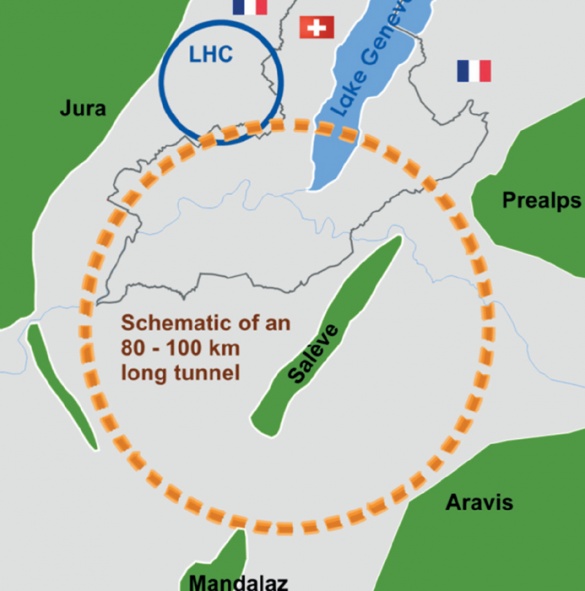
Expanding our understanding of the fundamental laws of nature requires the energy frontier to be pushed further. Reaching this goal within the 21st century in an efficient and reliable way calls for a larger circular collider.
The Future Circular Collider (FCC) aims at developing conceptual designs for a post-LHC particle accelerator research infrastructure in a global context, with an energy and luminosity significantly above that of previous circular colliders (SPS, Tevatron, LHC).
The study explores the potential of proton/proton (hadron) and electron/positron (lepton) circular colliders, performing an in-depth analysis of infrastructure and operation concepts and considering the technology research and development programmes, that are required to build and operate a future circular collider.
FCC with its high precision and high energy reach could extend the search of new particles and interactions well beyond the LHC, that may hold the key to understanding unexplained phenomena such as prevalence of matter over antimatter and provide evidence for dark matter.
RTU and FCC:
RTU has had an active involvement in the project and has made important contributions to the overall study, namely, in the development of new concepts for the maintenance, repair and surveillance using robotic platforms with an integrated laser-cladding equipment. Furthermore, RTU has contributed to the final FCC conceptual design reports (Parts I, II, III and IV), which have been published in the European Physical Journal 28. The FCC project, with the involvement of Latvian experts, is providing valuable inputs to the upcoming European particle physics strategy update.
More information on the project
CERN project: LHC
Implementation stage: ongoing
Project partners: The FCC Study, hosted by CERN, is an international collaboration of more than 150 universities, research institutes and industrial partners from all over the world.